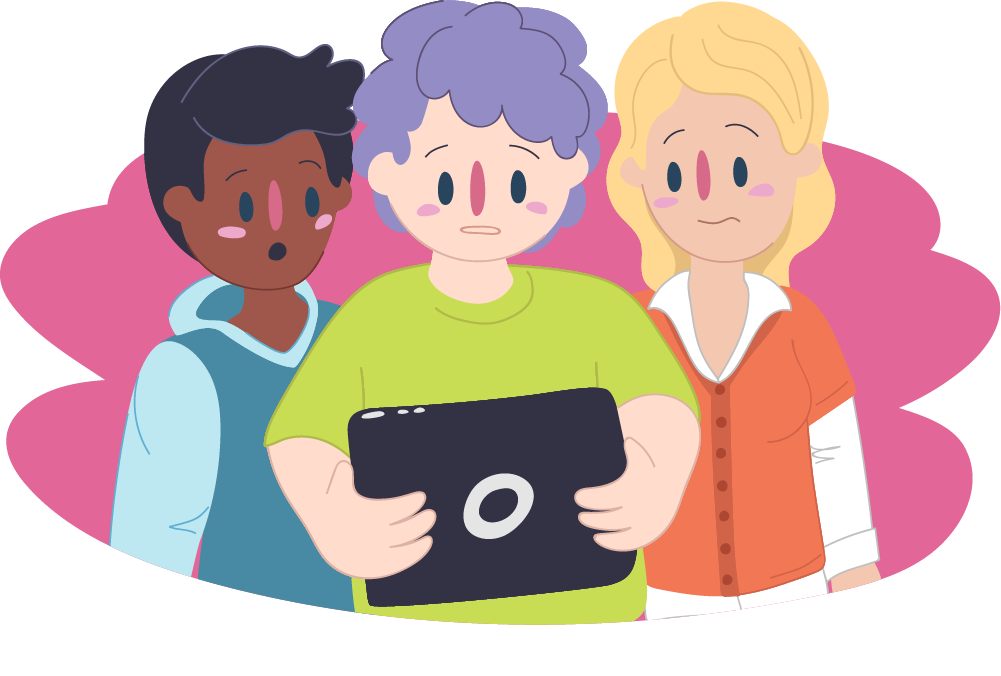Has your teen been watching 13 Reasons Why?
It's normal for teens to seek more privacy and keep some things from their parents. Usually these secrets are harmless. But, some secrets can be unsafe.
The teens on 13 Reasons Why season 3 are keeping many unsafe secrets.
Are you worried that your child may be keeping unsafe secrets?

Unsafe secrets might involve:
Someone who may be in danger (past, present or future, e.g. someone who experienced sexual abuse)
Someone who may have impaired judgement (e.g. someone who is feeling suicidal)
A power imbalance (e.g. an adult ordering a child to keep a secret)
Threats or bribes (e.g. “If you tell anyone I will never speak to you again!”)
Someone who is unable to give consent (e.g. a child, someone who is unconscious, etc.).
Something against the law (e.g. image-based abuse)

A secret may also be unsafe if…
- It affects your child's wellbeing (e.g. they feel stressed and have difficulties sleeping)
- It is a problem that is too complex for your child to solve on their own
How do I know if my child is keeping an unsafe secret?
All teens have a right to privacy. But keeping unsafe secrets can be stressful, distressing and even dangerous. Some warning signs that your child may be keeping an important secret may include:
Preoccupation with being online or communicating with friends
Changes in normal behaviour (e.g. changes in appetite or sleep patterns)
Acting secretive or suspicious of your motives when you show interest or ask questions
Asking unusual or theoretical questions about topics such as risk, safety, the law, or confidentiality
Seeming to leave out pieces of information or parts of stories when discussing something important
Extreme emotional responses to questions or conversation (e.g. getting angry when asked questions)
Getting your child to open up
If you suspect your child is keeping an unsafe secret, there are things you can do!
There are many reasons why a young person may not confide in a parent/carer. But there are things you can do to support your child, including:
- Stay calm and give your child time and space to confide in you
- Use TV shows (like 13 Reasons Why), movies, media stories or games as a conversation starter (e.g. "what do you think of Clay keeping that a secret on 13 Reasons Why?")
- Ask questions and show interest in your child's friendship groups, values and wellbeing
- Share age-appropriate stories of things you kept from your parents/carers when you were a teen and reflect on how help-seeking may have made a positive difference
- Reinforce that everyone makes mistakes and that your child can approach you to collaboratively discuss and problem solve any issue they may have
- Provide alternate help-seeking options, such as other trusted adults, a school guidance officer, or Kids Helpline
In a survey by Kids Helpline, 90% of young people said they keep secrets from their parents.
Young people often disclose things to Kids Helpline that they have kept secret from family or friends. This can include thoughts of suicide or child abuse.
- Amanda, Kids Helpline counsellor
What happens once your child confides in you?
If your child shares an unsafe secret, there are things you can do to collaboratively support your child and take appropriate action
Parents don't always have all the answers or know the right action to take in situations where a young person may be unsafe.
If your child is unsafe or you are concerned for your child's wellbeing, you can connect them with Kids Helpline. They can call, start a WebChat or send us an email.
As a parent, you may also need further support. You can contact Parentline in your state or territory. For support with online-related issues, connect with eSafety. If immediate action needs to be taken, you may also like to connect with a teacher at your child's school, a GP, the local police or another professional for guidance and support.
Check these out too:
Empowering young people to ask for help
Being able to ask for help when you need it is an ...
READ MEHow Parentline can help you
Parenting can be a tough job but also really rewarding. Talking to ...
READ MEMy child struggles with mental health
It's hard to know how to help your child when they're having ...
READ MEResponding to disclosures of child abuse
When a child discloses abuse it can be hard to know how ...
READ ME




